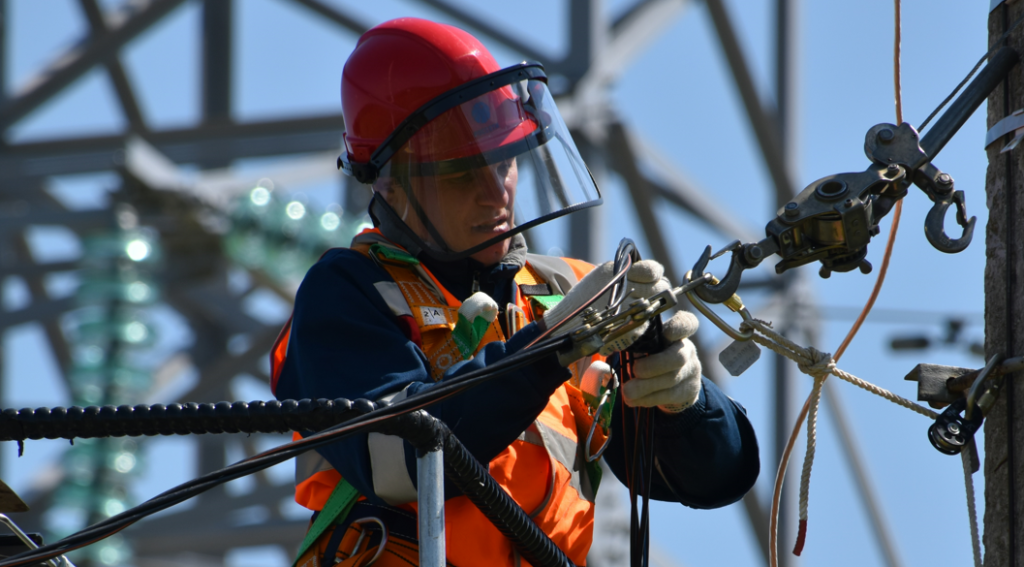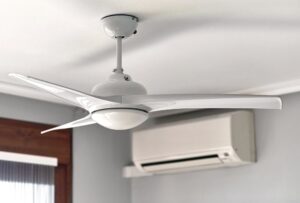Are you aiming to learn how to become an electrician in NSW?
Getting there requires obtaining a Certificate III in Electrotechnology, completing an apprenticeship, and securing a license.
We’ve put together some information about the pivotal steps and qualifications you’ll need to start your electrical career. Stay wired as we guide you through the essential information on how to become an electrician in NSW.
Key Takeaways
- To become a licensed electrician in NSW, one must complete formal vocational training through a Certificate III in Electrotechnology Electrician, followed by a four-year apprenticeship, and then apply for a license through Service NSW with all required documents and fees.
- Electrical licenses in NSW come in different types, including Contractor, Qualified Supervisor, and Tradesperson certificates, each with its specific functions and eligibility requirements, and all electricians must submit a CCEW to maintain their license.
- Career advancement for electricians in NSW can involve working for companies or starting one’s own business, and continuous education can lead to further specialisation in areas like residential, commercial, or industrial electrical work.
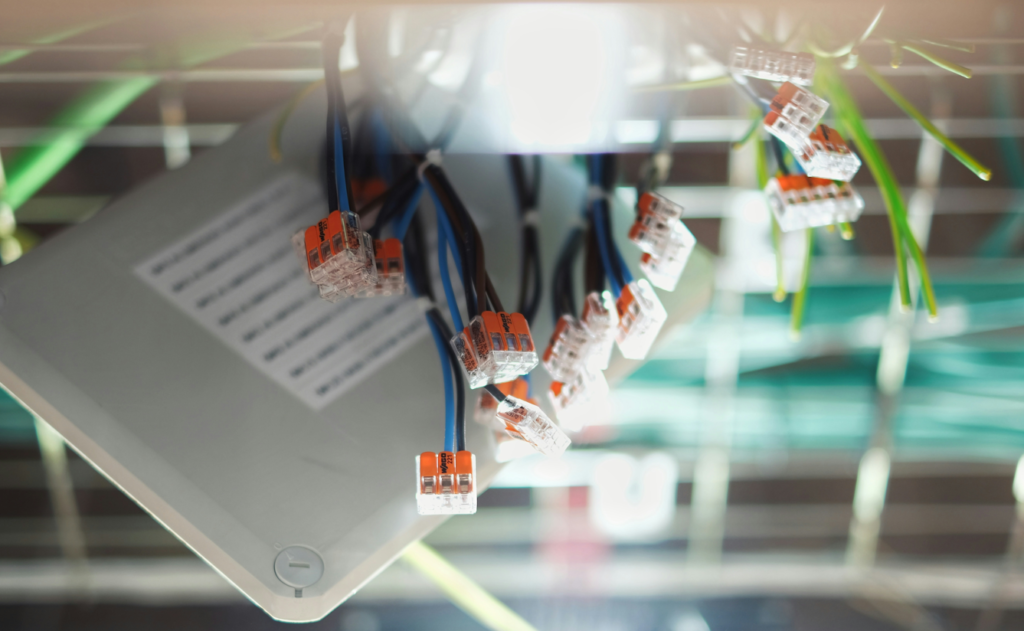
Pathway to Becoming a Licensed Electrician in NSW
To practice the electrical trade as a professional electrician in New South Wales, you’ll need an electrical licence. This credential validates your knowledge and expertise in electrical installations and safety. But getting this licence involves a combination of formal education, practical training, and navigating the licensing process.
Vocational Training and Education
Acquiring a Certificate III in Electrotechnology Electrician marks the first step in your journey to become a licensed electrician in NSW. This qualification equips you with the essential expertise and understanding required for the installation, diagnosis, and upkeep of electrical systems. Offered by registered training organisations like TAFE NSW, the course typically includes instruction on the installation of wiring systems, accessories, and appliances for low voltage general electrical installations.
In addition to TAFE NSW, other registered training providers that offer this certificate include:
- STC Training
- NECA College
- Australian Technical Training College (ATTC)
- Building Institute Australia
This credential is a stepping stone towards becoming an electrical tradesperson in NSW.
Apprenticeship Experience
An electrical apprenticeship complements your vocational training by providing a platform to put your theoretical knowledge into practice. Apprenticeships in NSW typically last for four years and involve on-the-job training under the supervision of a qualified electrician.
During your apprenticeship, you’ll gain invaluable hands-on experience in various aspects of electrical work. You’ll also earn a wage, which increases as you progress through your training. To be eligible for an electrician’s license in NSW, it is necessary to have acquired a minimum of 12 months of pertinent electrical wiring work experience.
Licensing Process
Upon the completion of your vocational training and apprenticeship, you should seek to obtain your electrician’s license. This process involves applying for a license through Service NSW. The application requires various documents, including:
- Proof of identity
- Original copies of qualifications from a registered training organisation
- A passport-sized photo
- Your employment history
The cost of applying for a license varies depending on the duration. For instance, a 1-year license costs around $271.00, a 3-year license costs $647.00, and a 5-year license costs $1115.00 (fees for 2023-24). Once you submit your application, it will be reviewed by NSW Fair Trading based on your qualifications achieved through vocational education and training.
Understanding NSW Electrical Licences
Understanding the significance of your electrician’s license is crucial once you have obtained it. In NSW, the available types of electrical licenses comprise of:
- Contractor
- Qualified Supervisor
- Endorsed Contractor
- Tradesperson certificates
Each type of license serves a specific purpose, allowing you to conduct electrical work under certain conditions or enabling you to contract and advertise your services.
Submitting a Certificate of Compliance for electrical work (CCEW) under the Gas and Electricity (Consumer Safety) Act 2017 and Gas Act 1997 is a requirement to maintain an electrical license with Fair Trading NSW. Fair Trading NSW plays a crucial role in the electrician licensing process by requiring individuals to obtain an electrical licence prior to conducting any electrical wiring work in NSW, irrespective of the cost or nature of the work.
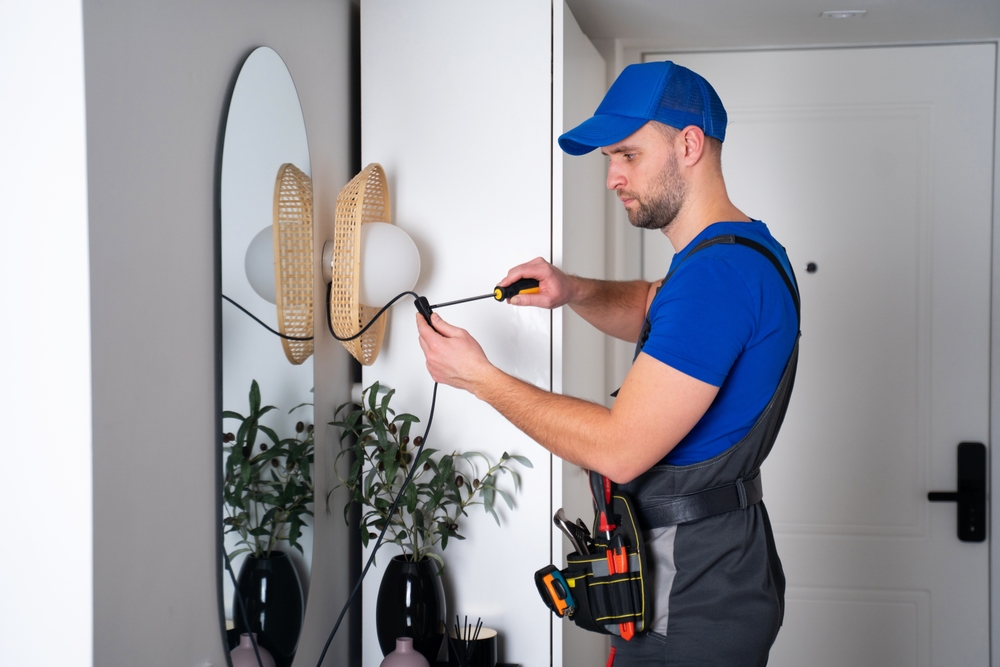
Types of Electrical Licences
Specific eligibility criteria and distinct functions are associated with each type of electrician’s licence in NSW. For instance, the Contractor Licence authorises electricians to contract and advertise their services to perform electrical work. The Qualified Supervisor Certificate allows you to supervise and conduct electrical work provided you meet certain eligibility requirements.
The Endorsed Contractor Certificate is obtained by applying for a contractor license and possessing the necessary qualifications and experience. Lastly, the Tradesperson Certificate, which can be obtained by fulfilling certain prerequisites, allows you to work as an electrician in NSW.
Licence Eligibility Criteria
To qualify for an electrical license in NSW, you need to:
- Be at least 18 years old
- Have completed a Certificate III in Electrotechnology Electrician
- For an unrestricted electrician’s license, you’ll need a minimum of three years of industry experience and a passing score on a technical knowledge assessment.
To obtain an electrical contractor license, you’ll need to meet specific eligibility criteria, such as not being disqualified from contracting, sub-contracting, or advertising electrical wiring work. For a restricted electrical license, you’ll need a minimum of 12 months of relevant electrical wiring work experience.
The Role of Fair Trading NSW in Electricians’ Licensing
Electricians’ licensing significantly involves Fair Trading NSW. They ensure electricians hold an electrical licence before conducting any electrical wiring work, regardless of the work’s nature or cost.
To maintain your license, you must submit a Certificate of Compliance for electrical work (CCEW) under the Gas and Electricity (Consumer Safety) Act 2017 and Gas Act 1997.
Application Submission
To apply for an electrician’s license in NSW, you need to:
- Submit your application online through the MyServiceNSW Account.
- Obtain the necessary qualifications, including a Craft Certificate, a Certificate III in Electrotechnology Electrician, and a Certificate of Proficiency.
- Initiate your application process.
Your application will require several documents, including:
- Identity documents
- Original copies of qualifications from your training organisation
- A passport-sized photo
- Proof of identity
- Your employment history
Once you submit your application, it will be evaluated by the vocational training tribunal at NSW Fair Trading based on your qualifications achieved through vocational education and training.
Maintaining Your Licence
The importance of maintaining your license is on par with obtaining it. As a licence holder, you’re responsible for renewing your licence and updating your personal information. Failure to renew your licence by the due date may result in its expiration, leading to the loss of your authorization to work in NSW.
You can update your personal information by logging into your MyServiceNSW Account and following the prompts to update your details. It’s also important to remember the significance of maintaining your licence. Without it, you won’t be legally allowed to conduct any electrical tasks within NSW.
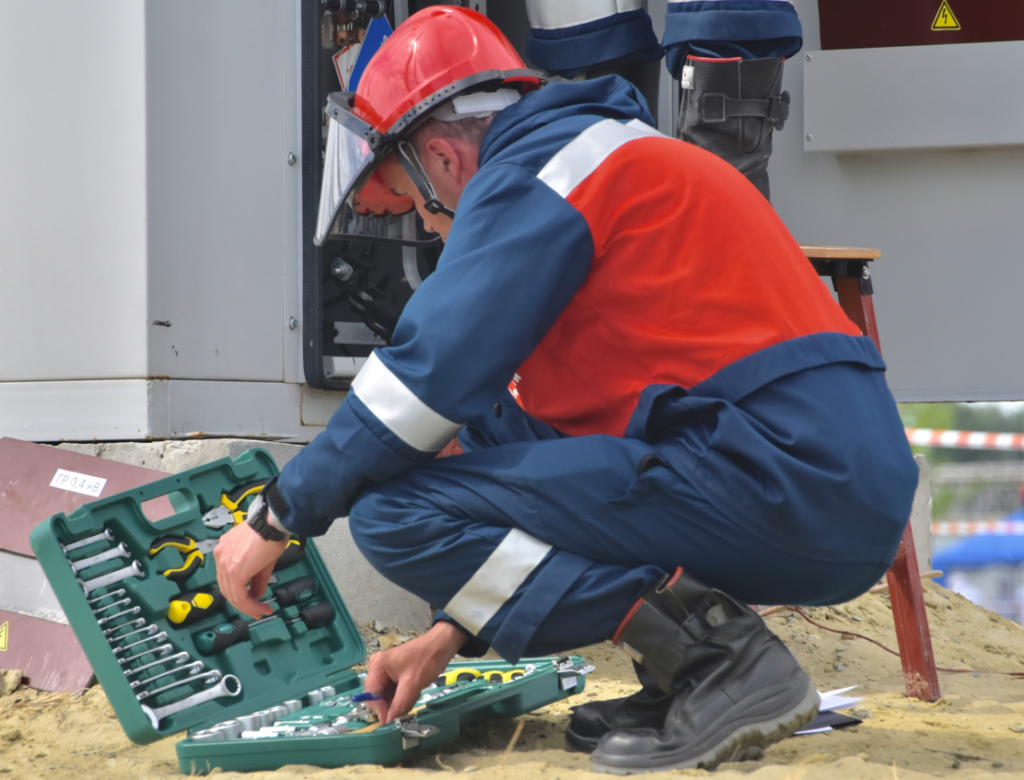
Essential Skills and Competencies for Electricians
Mastering a variety of technical and safety skills is a must for an electrician. Your technical proficiency includes understanding wiring systems, circuit connections, and electrical problem-solving. Safety skills, on the other hand, involve working on live equipment safely, following safety precautions, inspecting, testing, and tagging electrical equipment, and adhering to safety regulations.
Technical Proficiency
All electricians need to possess technical proficiency in electrical installation. It includes understanding wiring systems, which helps electricians distribute electricity safely while mitigating the risk of fires or mishaps. Circuit connections, which link electrical devices in a circuit with an energy source, are also an important part of the job.
Electricians must also possess problem-solving skills to address electrical issues. This includes:
- Performing visual inspections
- Utilizing testing equipment
- Diagnosing problems
- Repairing or replacing defective components
Safety and Compliance
The electrical trade regards safety as paramount. As an electrician, you have a responsibility to:
- Adhere to the instructions accompanying appliances
- Take any minor shock seriously
- Comply with NSW electrical safety regulations, including test and tag regulations, RCD testing regulations, and the NSW Work Health and Safety Regulations 2011
Failure to adhere to safety regulations can result in severe penalties, including significant fines.
Fair Trading NSW ensures adherence to safety standards among electricians by requiring the submission of a Certificate of Compliance for electrical work (CCEW). This certificate serves as evidence of compliance with safety regulations.
It’s also important for electricians to participate in safety training, such as:
- in-house sessions
- third-party courses
- competency assessments
- attending toolbox or safety meetings
This helps uphold and promote high safety standards in their professional practice.
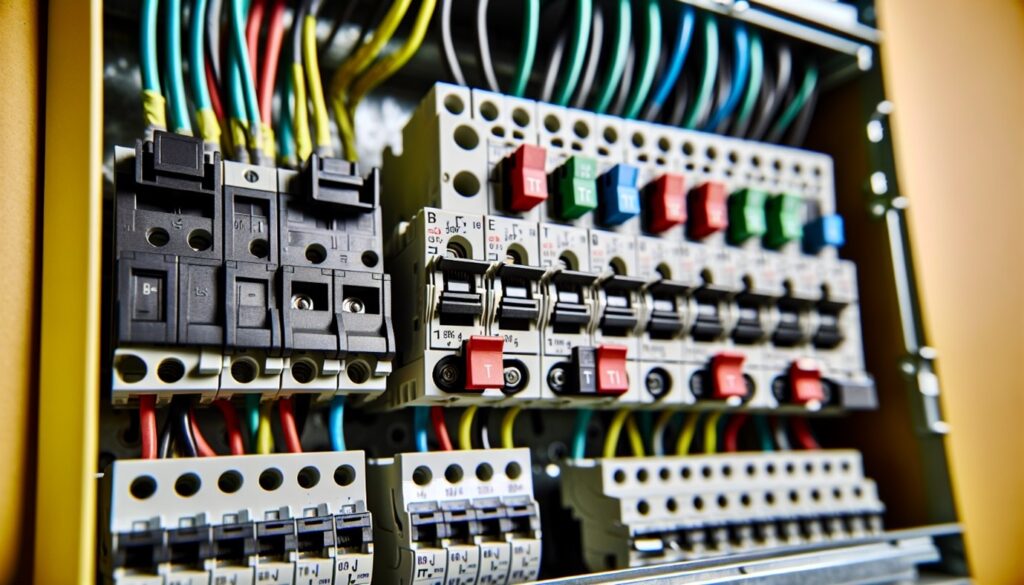
Job Opportunities and Career Progression for Electricians
Endless possibilities open up once you have your electrical license. Electricians in NSW can explore employment prospects in various sectors including:
- Construction
- Manufacturing
- Mining
- Utilities such as electricity, gas, water, and waste services
The average initial salary range for licensed electricians in NSW is between $48,118 and $81,106 per year, and it varies based on the type of electrician and the location.
Career Advancement
Advancing in your career as an electrician in NSW involves more than just obtaining your electrical licence. With accumulated experience, you may choose to work for a company or establish your own business.
Pursuing additional education and training can also open up new opportunities. For instance, you can:
- Complete a Certificate II in Electrotechnology (Career Start) (UEE22020)
- Earn a Diploma or Advanced Diploma in Electrotechnology
- Specialize in different areas, such as residential, commercial, or industrial electrical work
- Pursue specialty units offered by TAFE NSW
These options can enhance your career progression and provide you with specialized skills in the field of electrotechnology.
Preparing for the Electrical Licensing Exam
Diligent study and comprehension of the assessment criteria are required to prepare for the electrical licensing exam in NSW. Utilizing reliable study materials is crucial to ensure a thorough understanding and accurate responses to the questions in the written and practical components of the exam.
Study Resources and Materials
Various sources can provide reliable study materials for the NSW electrical licensing exam. These include textbooks such as ‘Journeyman Electrician Exam Prep 2023’, ‘Electrical Exam Preparation by Mike Holt’, and ‘Licensed Master Electrician Test Prep Booklet (90-220)’. Online resources such as TAFE NSW courses and Get Skilled Training also provide valuable information and practice exams.
Free online resources are also available to aid in your preparation for the exam. For instance, TAFE NSW offers courses such as the TAFE Statement in Re-Licensing for Electricians, which allows practicing electricians to review fundamental principles of electrical safety in relation to wiring rules.
Assessment Criteria
Comprehending the assessment criteria for the NSW electrical licensing exam is critical. The exam, known as the Licensed Electricians Theory Assessment, evaluates your knowledge in various electrical subjects over a duration of 2 hours and 15 minutes.
To pass the exam, you’ll need to score at least 75%. The exam is graded according to your performance in both theory and practical assessments.
It’s also important to note that in order to be eligible to sit for the NSW electrical licensing exam, it is necessary to possess a Proficiency Certificate and a C3 in Electrotechnology, in addition to having completed pertinent electrical training and qualifications from an accredited educational institution.
Mutual Recognition and Interstate Work
The East Coast Electricians scheme allows licensed electricians in NSW to work in other Australian states. The scheme facilitates mutual recognition of certain licences among:
- NSW
- Queensland
- Victoria
- ACT
This allows electricians licensed in one state to work in the others without needing an additional licence.
Working in Other States
The East Coast Electricians scheme enables you to work in Queensland, Victoria, or the ACT without the need to transfer your license. However, if you intend to permanently move to Victoria, you’ll be required to apply for a new license in that state.
Applying for Mutual Recognition
If you’re looking to have your NSW electrical licence recognised in other states, you can apply for mutual recognition. This involves filling out a mutual recognition application form and submitting it to a Service NSW Centre.
There are no charges associated with mutual recognition for New South Wales electricians under the East Coast Electricians scheme.
Insurance and Legal Requirements
Certain insurance and legal requirements must be complied with as a licensed electrician in NSW. For instance, you’ll need Home Building Compensation (HBC) Insurance for projects over $20,000 in value. This form of insurance reimburses homeowners for damages resulting from faulty or unfinished work performed by the electrician, providing security for both the customer and the electrician.
Summary
In conclusion, becoming a licensed electrician in NSW is a journey filled with learning, growth, and opportunities. From completing vocational training and an apprenticeship to obtaining and maintaining your electrical licence, each step prepares you for a rewarding career. So, are you ready to light up your future as a licensed electrician in NSW?


